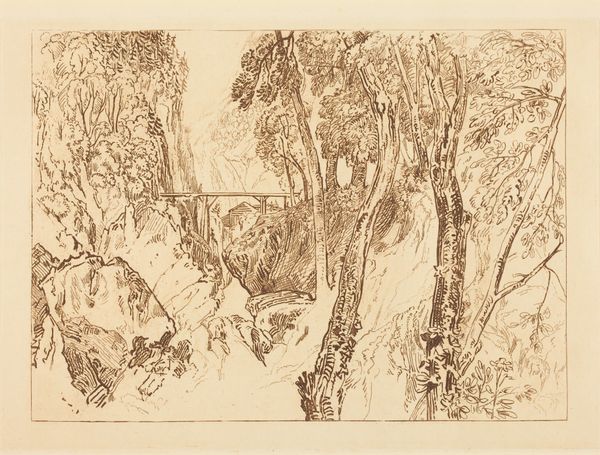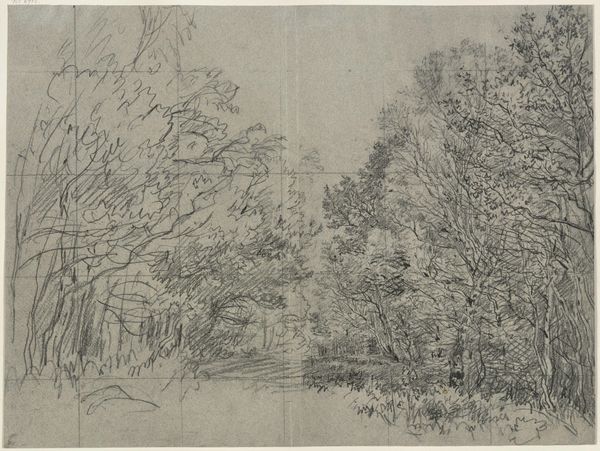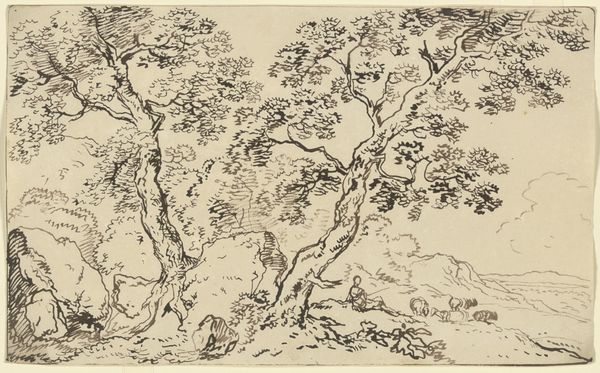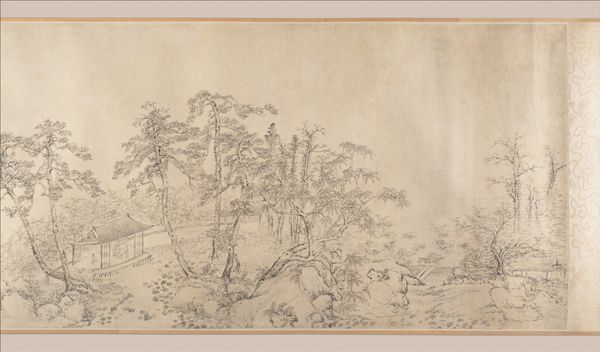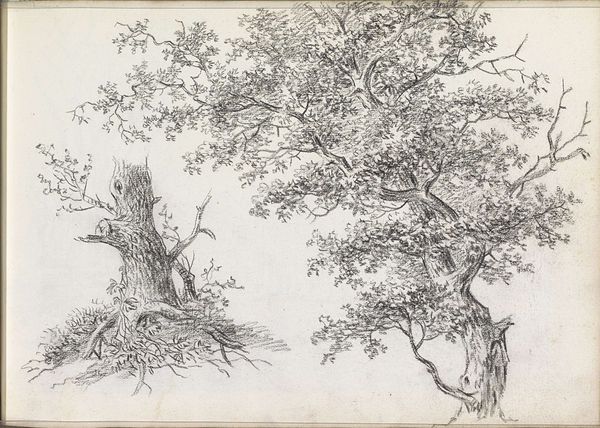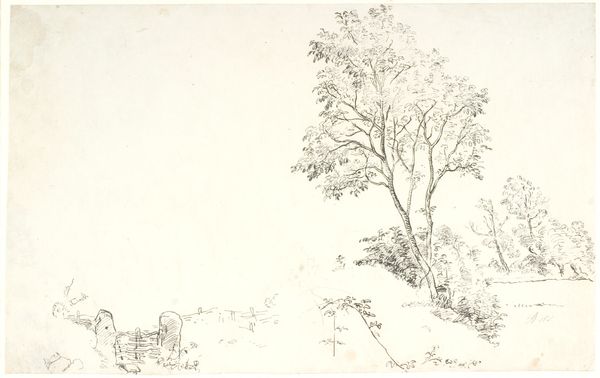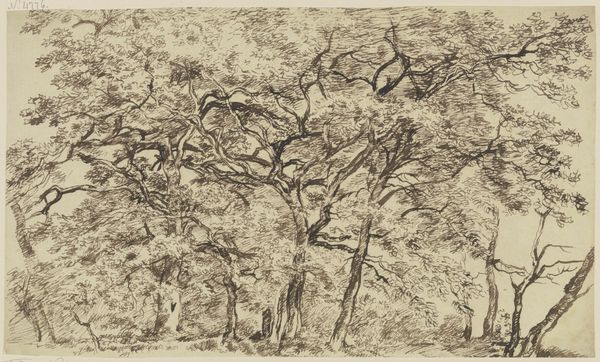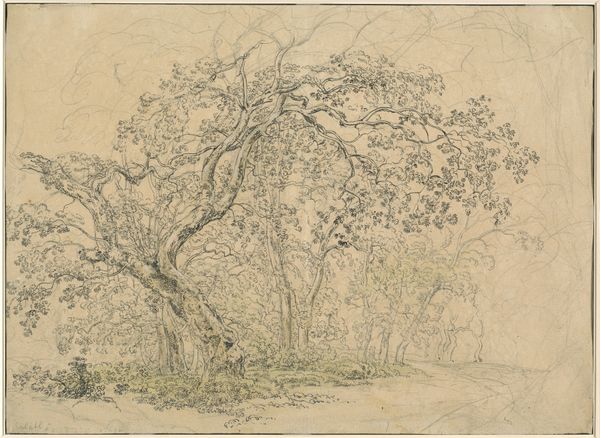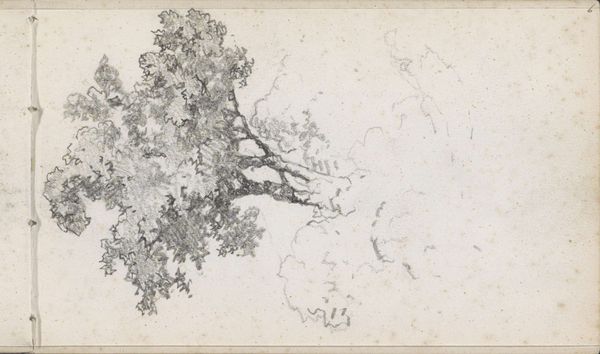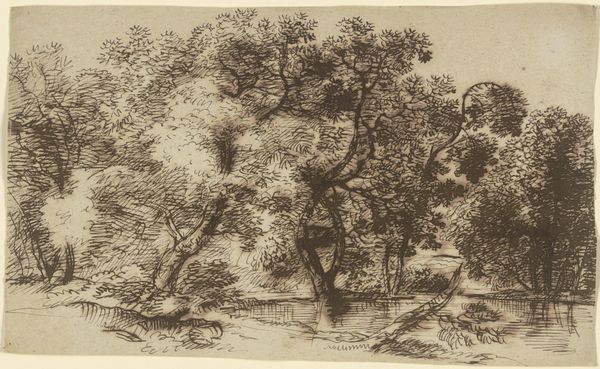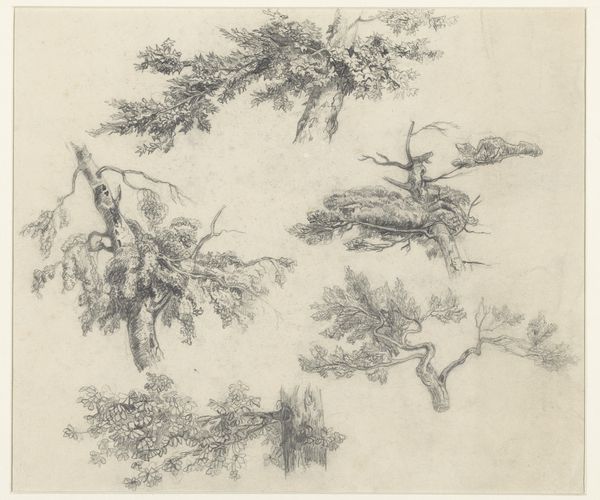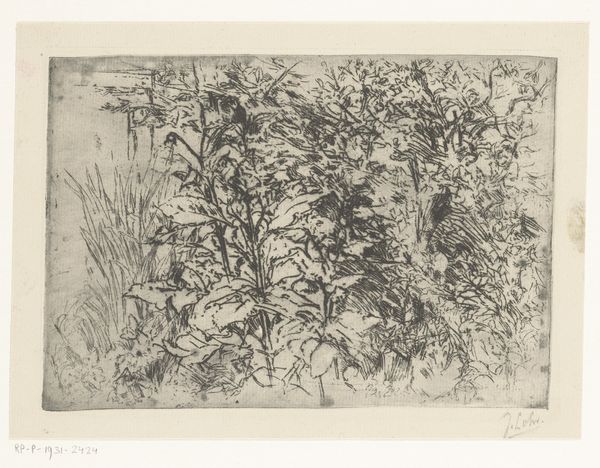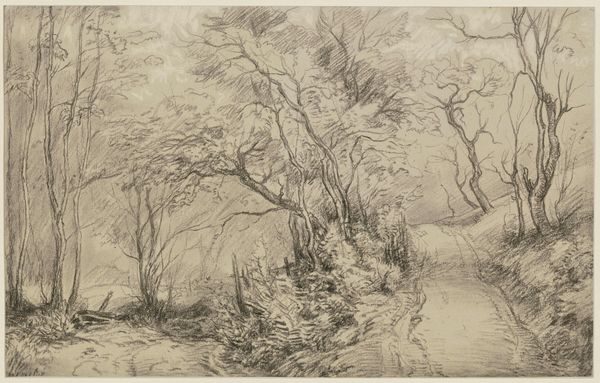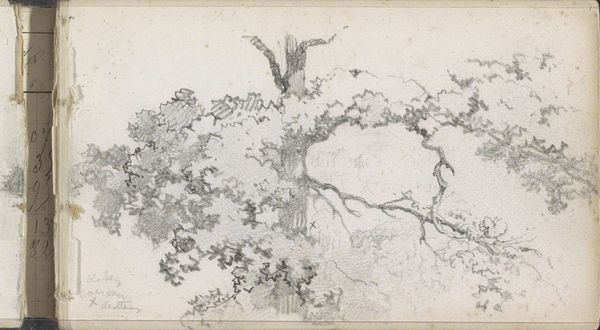
drawing, print, etching, ink
#
drawing
#
narrative-art
# print
#
pen sketch
#
etching
#
landscape
#
etching
#
ink
#
romanticism
Copyright: National Gallery of Art: CC0 1.0
Curator: So, tell me, what jumps out at you first about this etching, titled "Aesacus and Hesperie"? Turner might have made it around 1816, and it's ink on paper. Editor: It’s melancholy, isn't it? That lone figure by the water... almost dissolving into the landscape. The spindly lines remind me of memories fading, like a dream you can’t quite grasp. Curator: Indeed. Turner was deeply engaged with classical narratives, and this piece depicts the myth of Aesacus and Hesperie. See how the composition is structured? We've got the embracing, overarching trees, their forms echoed by the drooping willows – creating a sense of enclosure around these two figures. A mirroring or reflection? Editor: Reflection is key here, I think. Looking at the formal composition—the light, almost sketch-like rendering… the figures appear subjugated by nature's complex web. Is the subject nature’s indifference to human suffering? Curator: Perhaps. Or maybe it’s the romantic ideal of being consumed by nature! Turner frequently explored such dramatic, emotional themes. His use of line—the frenetic energy—conveys turmoil. Aesacus, upon seeing Hesperie die from a snake bite, plunges into the water. The trees almost feel like they're weeping. Editor: Exactly! I read the scene as overtly grief-stricken; a sense of dramatic emotional release. What appears formally as loose brushwork helps underscore the overall scene's chaos and heightened distress, right? The eye doesn’t find rest, jumping from figure to overhanging branch to foliage! Curator: Right, the lack of finish only adds to its emotional power, heightening the narrative drama by way of an almost abstracted or suggestive approach to landscape depiction. Well, thank you for walking us through the work in all its dramatic visual splendor. Editor: Always a pleasure to tease out the story hidden in the lines. It’s funny how such simplicity of form yields complexity of feeling, right?
Comments
No comments
Be the first to comment and join the conversation on the ultimate creative platform.
